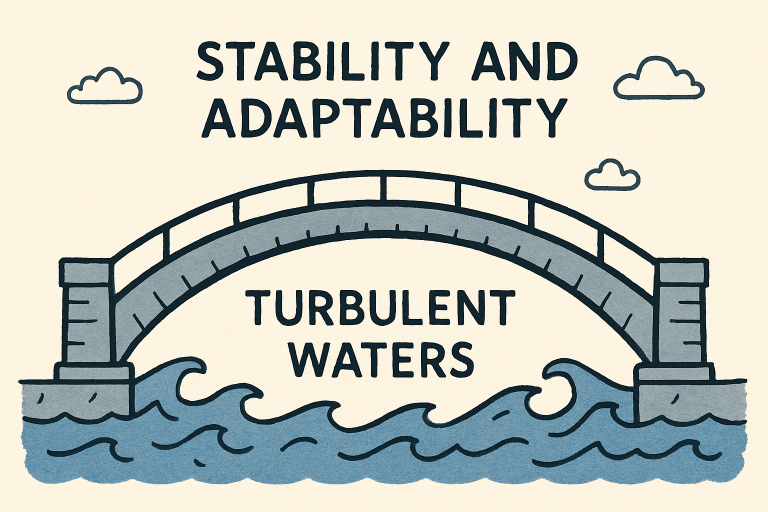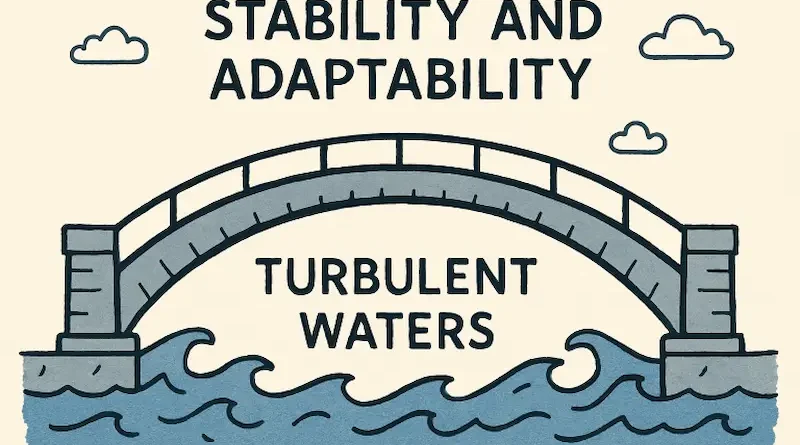Building Resilient Business Strategies for Uncertain Times
Introduction
In an era marked by sudden economic fluctuations and disruptive events, few businesses can afford to rely on static, outdated strategies. Organizations must future-proof their operations to survive and flourish by staying alert to environmental changes and continuously adapting to new realities. Adopting resilient business strategies isn’t just prudent—it’s essential for longevity and growth. Expert advisors at etosConsulting.com emphasize that embracing flexibility, proactive leadership, and innovation is fundamental for any company determined to thrive despite unpredictability.
By rethinking traditional planning models, reevaluating assumptions, and deploying forward-focused initiatives, businesses can effectively safeguard their future and promote sustainable growth, even when facing unprecedented challenges.
Building resilience involves a continuous commitment to every aspect of an organization, including financial management, technology, culture, and supplier relations. Leaders who prioritize agility and proactive risk identification can transform unexpected disruptions into growth opportunities, strengthening their competitive position, inspiring employee confidence, and ensuring critical business functions continue without interruption. This comprehensive guide provides strategies to empower organizations to survive and capitalize on uncertainty, ensuring their continued success.
Embrace Adaptability
Organizations that prioritize adaptability are far better positioned to weather volatility and emerge from crises even stronger than before. Rapid market shifts, changing consumer expectations, regulatory adjustments, and unforeseen global events like pandemics, geopolitical conflict, or natural disasters require companies to rethink their operating models quickly and efficiently.
Proactive organizations develop flexible plans for various scenarios rather than setting operations on autopilot. Embracing remote work tools, enhancing digital capabilities, and maintaining the internal infrastructure to shift operations swiftly can mean the difference between enduring hardship and losing momentum. For example, during the COVID-19 pandemic, many companies pivoted to digital offerings overnight or reimagined their service delivery, demonstrating that the ability to adapt rapidly is a powerful differentiator and a fundamental risk-mitigation tool in today’s climate.
Strengthen Financial Foundation
Financial resilience is the bedrock for an organization’s ability to manage downturns and unforeseen challenges without sacrificing core operations or workforce stability. Building healthy cash reserves provides an essential buffer, while optimizing cash flow management ensures that the business can stay nimble in the face of fluctuating revenues.
Prudent debt management—including maintaining manageable leverage levels and structuring clear, achievable repayment plans—reduces vulnerability to sudden economic shocks, such as sharp interest rate hikes or credit market disruptions. Moreover, regular financial health checks and scenario planning help businesses anticipate future pressures so they can act before difficulties escalate. These disciplined financial practices protect businesses from liquidity crises, keep them creditworthy, and allow them to seize new opportunities when they arise, giving them a competitive edge in uncertain markets.
Foster a Strong Company Culture
Resilient organizations are built on the foundation of a robust, adaptive company culture. Empowering employees at every level not only boosts morale and attachment to the company mission but also spurs innovation and adaptability across departments. Encouraging continual learning, skill-building, and career development keeps the workforce agile, making it far easier to respond when unexpected circumstances arise. Transparent communication—from top leadership down—ensures that everyone in the organization is well-informed, aligned, and motivated to work toward shared goals. Additionally, organizations that foster inclusion, support staff mental well-being, and champion collaboration create environments where team loyalty and engagement thrive, even during moments of adversity. This people-first approach means that companies will likely navigate difficult times more smoothly and retain top talent for the long term.
Invest in Innovation
Innovation is vital for long-term organizational resilience and industry leadership, particularly in markets characterized by rapid evolution. By cultivating an environment where employees feel encouraged to devise and test creative solutions—even if failure is possible—companies empower themselves to refine products, processes, and services continually. Sustained investment in research and development keeps businesses ahead of emerging industry trends. In addition, adopting new technologies—such as artificial intelligence, automation, advanced data analytics, or cloud computing—can streamline operations, deliver better customer experiences, and significantly improve the speed and accuracy of decision-making. Ultimately, innovative organizations differentiate themselves in crowded marketplaces and maintain a well-prepared stance for sudden change, ensuring their relevance both now and in the future.

Build Strategic Partnerships
The right external alliances can significantly bolster a company’s capacity to handle disruptions, enter new markets, and accelerate growth. Cultivating collaborations with reliable suppliers helps organizations secure necessary components, even when supply chains are under strain from widespread logistical upheaval. Likewise, industry partnerships with complementary businesses can confer added stability, broaden expertise, and enhance credibility in the marketplace. Entering joint ventures or consortia opens doors to innovative business models, technology-sharing, and expanded distribution networks. By building and nurturing strong business networks, organizations not only shield themselves from the direct impacts of uncertainty but also often discover new opportunities and sources of value that would be difficult to access alone.
Manage Risk Effectively
Risk management should be woven into the fabric of every resilient organization. Conducting regular, thorough risk assessments enables leaders to anticipate threats—from cyberattacks and supply delays to regulatory changes or reputational crises—and address them before they can escalate.
Creating and maintaining comprehensive risk management plans, complete with defined team roles, escalation procedures, and contingency budgets, ensures an organization is ready to respond quickly and confidently when disruptions arise. Additionally, aligning insurance coverage and business continuity plans with the latest risks gives an extra layer of security against unforeseen events that could otherwise endanger organizational stability. Leadership teams that treat risk management as a continuous, proactive discipline are much better equipped to maintain operations and credibility, even during unexpected challenges.
Enhance Supply Chain Resilience
Supply chain interruptions can quickly destabilize a business, leading to lost revenues and reputational damage. Diversifying suppliers both regionally and globally reduces overreliance on any single vendor and mitigates the risks of sudden shortages or transport interruptions. Establishing relationships with local suppliers can further enhance reliability while minimizing exposure to global transportation delays or international regulatory changes. Integrating advanced digital tools for real-time supply chain tracking, predictive analytics, and inventory management enables companies to identify and address bottlenecks proactively before they become critical. Organizations ensure smoother operations by routinely evaluating supply chain vulnerabilities and implementing redundant systems, no matter how widespread the disruption may be.
Prioritize Sustainability
Sustainable practices are crucial for future-proofing businesses and maintaining trust with customers, investors, and stakeholders. Environmentally responsible operations, such as reducing energy consumption and adopting circular economy principles, help companies reduce costs and strengthen their brands. Social responsibility, such as community engagement and ethical supply chain management, increases organizational resilience and fosters loyalty. Economic responsibility, including regulatory compliance and high business ethics standards, positions organizations for long-term growth and stronger investor relations. Prioritizing sustainability as a core business pillar helps safeguard the environment, build stronger community relationships, and ensure resilience for the next generation. Businesses implementing these resilient strategies can navigate uncertainty confidently, leading their industries into the future.
Visit the rest of the site for more interesting and useful articles.

